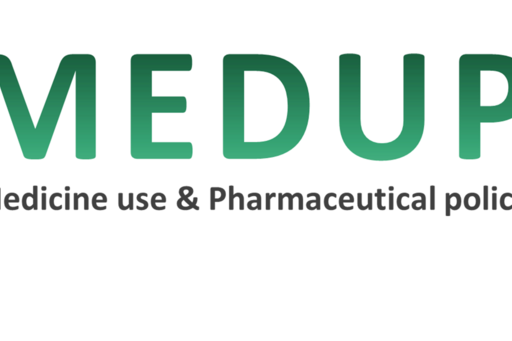
MEDUP – Medicine use & Pharmaceutical policy
Short description
MEDUP is a research group and a network for people who do research on medicine use and pharmaceutical policy. Research areas of interest are which medicines are used by different population groups, how they are used, outcomes of use, and factors affecting use at the individual and societal level.
Prescribing and use of medicines is largely influenced by policies that regulate availability and accessibility of medicines, which makes it important to study both the positive and negative effects of policies from different perspectives.
The field of science is social pharmacy, a multidisciplinary field, and the research is based on different perspectives: users / patients, professions, populations and society. The research group has an interest in and competence in both quantitative and qualitative research methods.

Medicines is the most common treatment for different diseases. The actual use of medicines is affected by many factors on an individual- and societal level. For instance an individuals´ beliefs about advantages and disadvantages with the treatment and if they want to use the prescribed medicine. Pharmaceutical policies also have an impact on the treatment and use of medicines, and studying attitudes to and effects of such policies is also part of the research group's interest. One example is the re-regulation of the pharmacy market and the possibility of buying over-the-counter (OTC) medicines from other retailers. An increased knowledge of influencing factors and the actual use of medicines provides researchers, decision-makers, and health professionals with an improved basis for pharmacoepidemiological studies, for policy decisions and for treatment of ill health and treatment of the individual patient.
Studying and analyzing the use of medicines with valid methods is one of the research group's main strengths, but MEDUP has conducted research in all sub-areas of of social pharmacy research:
- Prescribing, use of medicines, and different outcomes of use
- Strategies to improve medicine use in society: pharmaceutical policies and pharmaceutical interventions in pharmacies and healthcare
- The pharmacy professions, pharmacy practice and collaboration with other healthcare professionals
- Development of research methods in the field
Ongoing projects
Publications
Participants
- Henry Ascher (External link)
- Pernilla Bjerkeli (External link)
- Simone Dohle (External link)
- Maria Emilsson (External link)
- Joanne Fuller (External link)
- Hanna Gyllensten (External link)
- Helle Håkonsen (External link)
- Christina Ljungberg Persson (External link)
- Laura Pazzagli (External link)
- Björn Södergård (External link)